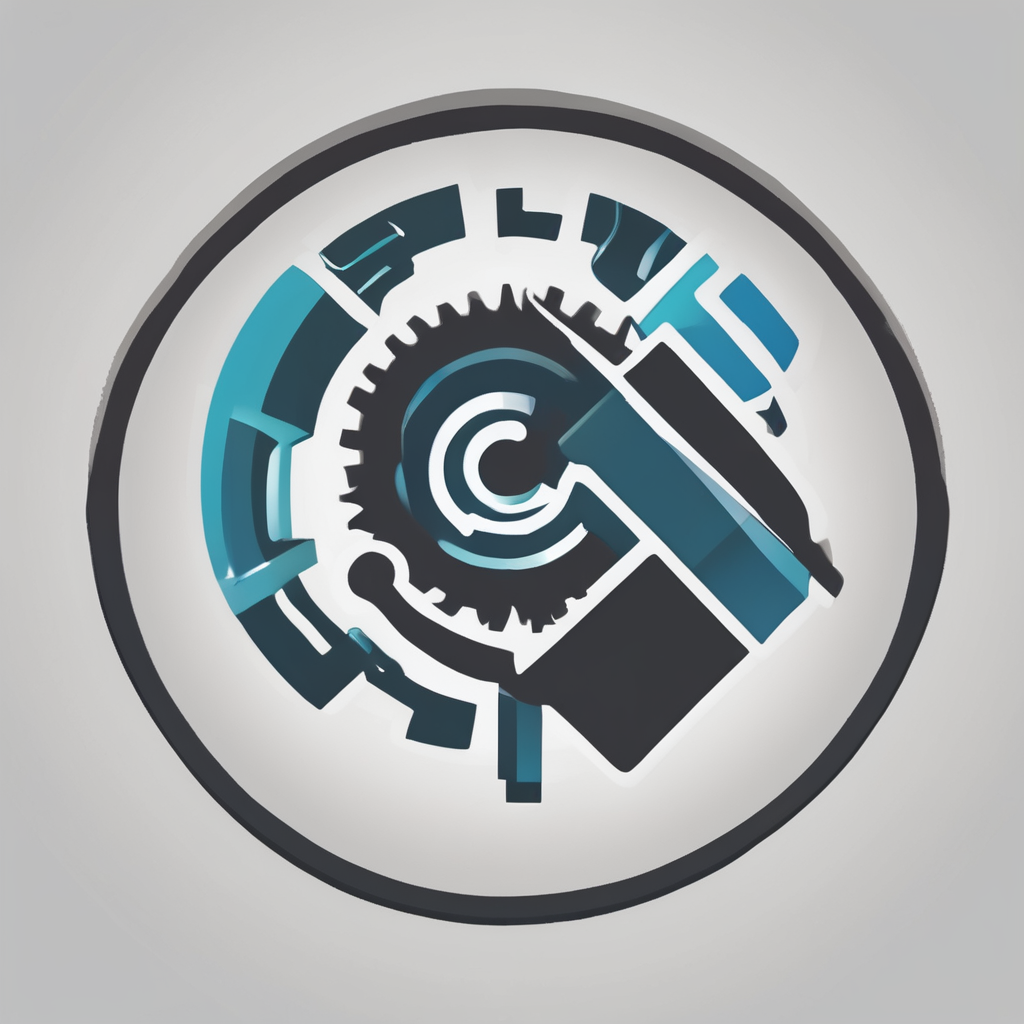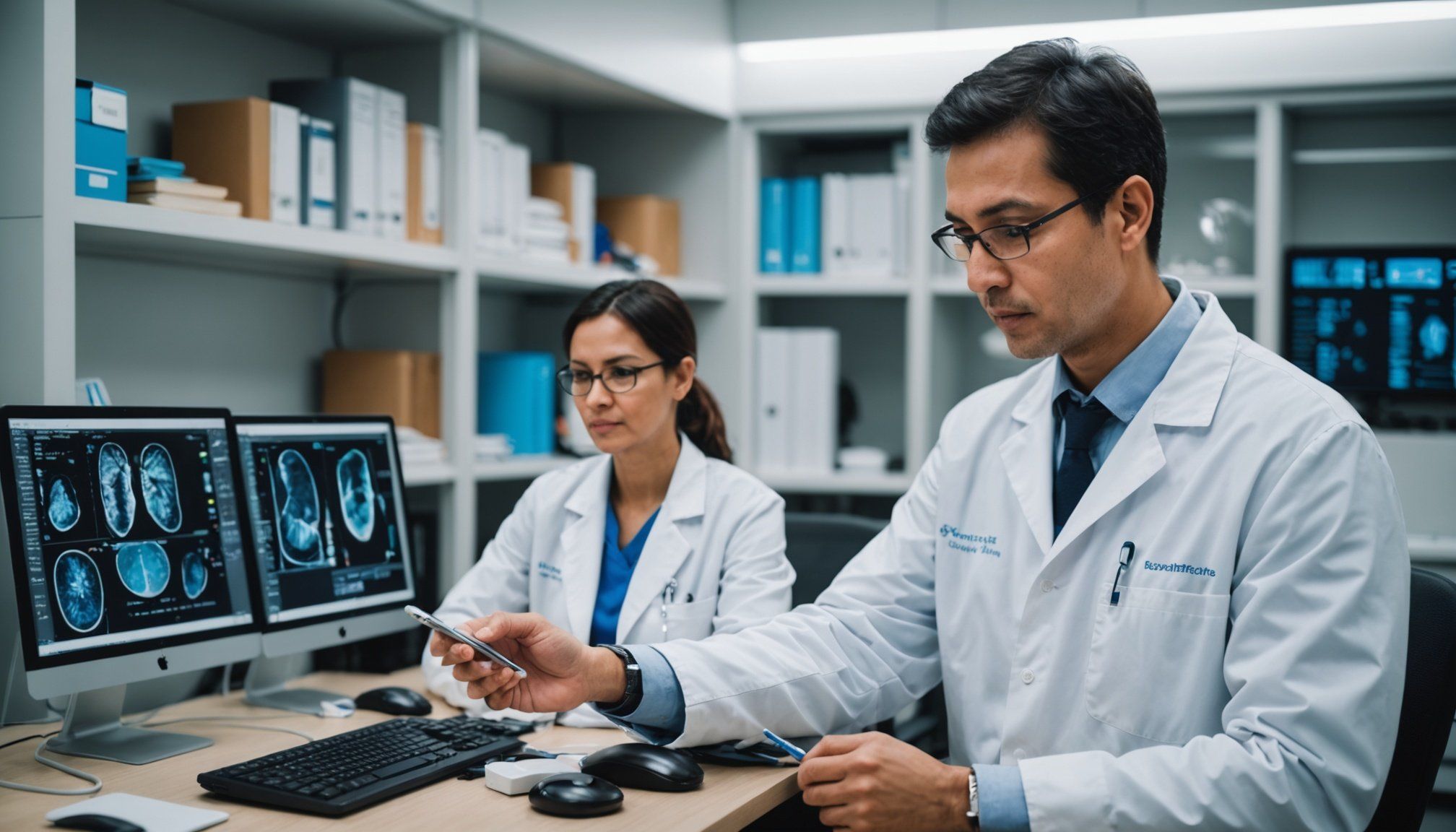Overview of the Innovative AI Platform
The AI healthcare platform is revolutionising medical technology by enhancing early disease detection. This advanced system employs cutting-edge algorithms to analyse patient data swiftly and accurately. By using a vast dataset, it recognises patterns that could indicate the onset of diseases, thus allowing for timely intervention and treatment.
The core functionality of this platform lies in its ability to integrate seamlessly with existing medical systems, providing healthcare professionals with actionable insights without disrupting current processes. Utilising machine learning and deep learning technologies, the platform constantly improves its diagnostic capabilities by learning from new data inputs.
Additional reading : Developing a secure ai-driven identity verification system for safe remote access
Early disease detection is a significant feature of this platform, achieved through sophisticated predictive analytics. By comparing a patient’s current health information against a historical database, it can flag potential health issues well before conventional methods. This technological foresight is crucial in conditions where early diagnosis can significantly alter outcomes, such as in cancer or cardiovascular diseases.
The integration of AI into the healthcare sector paves the way for more personalised medicine. It offers the potential to not only treat but prevent diseases, thereby shaping a future where healthcare focuses as much on wellness as on disease management. In conclusion, this AI platform is a formidable tool in evolving healthcare delivery.
In parallel : Revolutionizing energy efficiency: cutting-edge ai approaches for optimizing smart grids
Case Studies and Effectiveness
Case studies provide valuable insights into the AI impact on modern healthcare, showcasing real-world examples of disease detection advancements and successes.
Successful Implementation in Hospitals
Across the globe, hospitals are embracing AI-driven solutions for improved efficiency in diagnosing diseases. Notably, a case study in London demonstrated significant enhancements in early detection of breast cancer, where AI systems performed on par with radiologists in spotting anomalies, boosting diagnostic speed without sacrificing accuracy. AI’s implementation has reduced diagnostic times, allowing for faster access to treatment.
Quantitative Results and Improvements
Quantitative data from these implementations reveal substantial improvements. For instance, a hospital in New York recorded a 30% increase in disease detection accuracy, indicating that AI systems are not only accurate but also enhance conventional methods. The speed of diagnosis saw a 50% reduction in time compared to manual processes, reflecting AI’s capability to streamline operations effectively.
Patient Feedback and Outcomes
Patients have reported positive experiences due to AI’s integration. Testimonials from individuals treated in AI-enabled facilities highlight increased confidence in diagnosis and a sense of timely, personalised care. While some express concerns over privacy, the predominant feedback underscores AI’s potential to revolutionise patient outcomes with greater predictive accuracy and tailored treatment options. This has bolstered trust in AI’s continuing role within healthcare institutions.
Benefits for Healthcare Professionals and Patients
In the realm of healthcare, advancements in technology are reshaping the way both professionals and patients experience medical care. A significant benefit for healthcare professionals is the enhancement of diagnostic capabilities. With the aid of artificial intelligence, medical practitioners can analyze vast amounts of data with precision. AI tools facilitate early detection of diseases, leading to timely interventions and improved patient care.
Patient impact is profound, as these technological innovations not only boost the accuracy of diagnoses but also improve overall outcomes. Patients often experience enhanced satisfaction rates due to personalized treatment plans tailored to individual needs. The efficiency achieved means shorter waiting times and more focused healthcare delivery.
For healthcare providers, the advantages extend beyond diagnostic improvements. Time and cost efficiencies are critical professional advantages AI offers. By automating routine tasks, medical staff can dedicate more attention to direct patient care. This not only streamlines operations but also reduces operational costs, which admittedly benefits the entire healthcare system.
Ultimately, the healthcare benefits are clear: enhanced diagnostic abilities lead to better patient outcomes and satisfaction, while professionals benefit from increased efficiencies in both time and cost management.
Future Trends in Disease Detection Technologies
The future of healthcare is transforming with rapid advancements in emerging technologies and disease detection tools. As we look forward, significant innovations are on the horizon, each promising to enhance our understanding and management of diseases.
Innovations on the Horizon
Emerging technologies are set to revolutionise disease detection. One notable advancement is the refinement of non-invasive testing methods, which are being developed to allow early detection with greater accuracy and less discomfort. These technologies promise to deliver precise diagnostic information swiftly, improving patient outcomes and streamlining medical processes.
Potential Integration with Wearable Devices
Wearables are increasingly playing a vital role in continuous health monitoring. Imagine a future where your smartwatch not only tracks your heartbeat but also flags abnormal rhythms indicative of potential health concerns. With ongoing integration, these devices could become central to personalised healthcare, providing real-time data to physicians for timely intervention and disease monitoring.
Predictions for AI in Healthcare
Artificial Intelligence (AI) is poised to serve as a cornerstone in the future of healthcare. Experts predict robust AI algorithms will assist doctors by providing data-driven diagnosis and prognosis suggestions, significantly reducing the margin for error. By analysing vast volumes of medical data swiftly, AI technologies could foresee outbreaks, optimise treatment plans, and enhance overall health management.
Technical Details of the AI Platform
Delving into the technical specifications of the AI platform provides insight into its capabilities. The platform operates with advanced AI algorithms designed to efficiently process vast amounts of data. These algorithms employ machine learning techniques like natural language processing and computer vision to interpret complex datasets. Their precision ensures accurate results, which is crucial for sensitive applications.
The data analysis process is central to the platform’s functionality. It involves collecting raw data, which is then cleaned and pre-processed to enhance data analysis accuracy. This data is often filtered through several layers of neural networks, promoting sophisticated data interpretation. Such refined methods allow the platform to adapt and optimize its responses based on real-time information.
Security is paramount, particularly when handling patient data. The platform incorporates robust security measures to safeguard against data breaches. Encryption protocols protect data during transmission and storage, ensuring compliance with privacy regulations. By implementing secure access controls and continuous monitoring, the platform guarantees that patient information remains confidential.
In summary, the AI platform marries high-level technical specifications with rigorous data protection practices. Its use of cutting-edge AI algorithms enhances both functionality and security, providing a reliable framework for technological innovation.
Challenges and Limitations
Navigating the landscape of AI challenges within healthcare reveals both technical obstacles and regulatory barriers. These hurdles stem from the extensive data privacy regulations that must be adhered to for successful AI integration. The need for strict compliance with regulations like HIPAA can delay implementation processes. Additionally, the varying standards across regions further complicate the adoption of AI technologies.
Technical and Regulatory Challenges
A key component in the implementation hurdles for AI in healthcare is ensuring data security and privacy. Trustworthy AI systems need robust frameworks to manage highly sensitive patient data securely. Meeting regulatory mandates adds complexity to the initial deployment phases, impacting the speed of technological advancements.
User Adoption Issues
One of the pressing healthcare limitations is the human factor, particularly user adoption resistance. Healthcare professionals may be hesitant to embrace AI solutions due to concerns about job displacement and the need for significant training. Bridging this gap requires comprehensive education programs that highlight AI’s potential to augment, rather than replace, existing capabilities.
Limitations of Current AI Technology
Despite AI’s transformative potential, there are inherent limitations. Current AI models often lack the nuanced understanding required for complex clinical decisions. Machine learning algorithms can struggle with the ambiguity and variability inherent in medical data, impacting their reliability and performance across diverse scenarios.
User Testimonials and Experiences
Understanding real-life interactions in healthcare is crucial. User testimonials provide invaluable insights into the patient-care continuum. These stories often reveal the intricacies of healthcare journeys and illustrate the profound impact healthcare platforms can have on patient outcomes.
By collecting insights from healthcare professionals, we gain a comprehensive view of the therapeutic processes and treatment experiences. Such testimonials are pivotal in understanding how systems work in practice, beyond theoretical models. They highlight the challenges healthcare workers face and how various tools assist them in overcoming these hurdles.
Patient stories form a critical part of this narrative. Through case studies, we see the transformative journeys of individuals navigating complex healthcare systems. These narratives help in identifying pain points and areas where improvements are necessary, directly influencing platform enhancements.
The importance of user experience cannot be overstated, as it heavily influences a platform’s success. When patients’ experiences are positive, and healthcare professionals find tools intuitive and effective, the benefits are multidimensional. Not only does it improve patient satisfaction, but it also enhances clinical outcomes. Therefore, prioritizing user experience ensures these systems operate optimally, fostering confidence and trust among users. Through testimonials and experiences, we continuously learn and evolve, ensuring platforms meet everyone’s needs.











